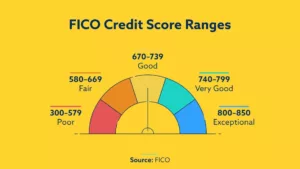We often hear about building wealth but may not understand where to start.
Since most people aren’t trust-fund babies wealth-building is important to the majority of American families. In fact, the share of wealth in the economy is increasingly owned by families in the top one percent of the income distribution. According to the Brookings Institute:
The Middle Class Now Holds Less Wealth than Top 1 Percent
There are very few, if any, get rich schemes that actually work. Slow and steady remains the sure-thing that helps build wealth – with real estate being the most consistent wealth-building tool.
Real estate has long been a viable tool in building wealth
Property values will fluctuate but over the long-run real estate values have always gone up. It’s been 10 years since the “housing crisis” that caused a sharp downfall in home prices. For sale signs were everywhere and it seemed as though there was no market recovery in sight.
But fast forward a few years later where wealth is being built through real estate-and it’s not just developers.

Average people with no real estate background,are engaging in the market and prospering. You can too.
How to start building wealth with real estate
Historically, real estate is very stable. Over a period of time properties tend to appreciate due to inflation and demand. You can purchase property for yourself to live in or invest in rental property. Rental property investment is a smart way to build reliable tax-advantaged passive income.
Either way, real estate can build wealth because interest rates are low and you don’t have to tie up a lot of cash in the investment.
1. Rental property builds wealth.
 Whether the property is a house, condo or duplex. Rental property is profitable. Where else can you get a mortgage loan, pay it back with a tenant’s money and keep the difference as your profit?
Whether the property is a house, condo or duplex. Rental property is profitable. Where else can you get a mortgage loan, pay it back with a tenant’s money and keep the difference as your profit?
Just do your research to ensure the property produces more income than it costs to own. Start by investing in up-and-coming real estate areas.
Where are younger people moving? Is a sports stadium being built in the area? Look for areas where growth is occurring. Property values will likely rise in sought-after neighborhoods which means more profit in rents as long as you don’t sell. If your credit is a little shaky, consider investing in a duplex or multiplex with a 203K Rehab Loan that does not require good credit.
2. Owning a home builds wealth and your credit score.
A home builds wealth and your credit score. What?
 Yes, when you purchase a home to live in paying a mortgage increases your equity in that asset and increases your credit score. Having a mortgage can help improve your credit score because a home loan adds points to the “credit mix” factor in FICO scores.
Yes, when you purchase a home to live in paying a mortgage increases your equity in that asset and increases your credit score. Having a mortgage can help improve your credit score because a home loan adds points to the “credit mix” factor in FICO scores.
Credit mix makes up 10% of your overall credit score. As long as you make your payments on time, your mortgage can improve your credit score.
Even though a mortgage is a debt, it’s “good” debt, because it is tied to your house which is considered an asset. Owning a home carries tax benefits, too. You can deduct the interest on your mortgage from your income taxes, as well as some closing costs and annual property taxes. Tax incentives like these help homeowners build wealth.
When you sell your home, the law allows you to keep the profits and pay no capital gains taxes. As long as you have lived in your home for two of the past five years, you can exclude up to $250,000 for an individual or $500,000 for a married couple of profit from capital gains.
3. Your home can be another source of income.
 Rent out your property or just part of it. Sites like Airbnb make it convenient to use your home as a source of income. Think about it, if you have an extra room you can rent it occasionally without taking on a permanent tenant.
Rent out your property or just part of it. Sites like Airbnb make it convenient to use your home as a source of income. Think about it, if you have an extra room you can rent it occasionally without taking on a permanent tenant.
You can also rent your entire home. You may want to rent it while you stay in an inexpensive hotel or while on vacation.
For example, a family visiting your area is looking for a house to rent on Airbnb. You agree to rent it for $300 a night while you stay at a hotel for less than $100 a night. You profit $200 a night.
4. Podshare an extra room in your home.
 Currently, Podshare is primarily a membership-based living space, ranging from $50/daily, $280/weekly up to $1000/monthly.
Currently, Podshare is primarily a membership-based living space, ranging from $50/daily, $280/weekly up to $1000/monthly.
Very similar to dormitory-style living, this co-living concept has taken off in high-priced areas like Los Angeles and San Francisco.
There’s no security deposit and once you pay, you have the choice of going to different high-priced parts of town. Renters get the benefits of living in a high-cost area without paying exorbitant rents which typically accompany those areas.
The idea of communal living isn’t new. However, the business model of PodShare is designed for younger people with a decent income that enjoy communal living as well as affordable housing.
There’s nothing to keep you from doing the same with an extra room in your home. Instead of renting one room to one tenant, rent one room to 4 tenants. This option can be a nice chunk of change to stash in a high-interest savings account each month.
Best way to start real estate investing
Single-Family Rentals
Investing in a single-family rental is the best place to start. It’s probably the most straightforward form of real estate investing as opposed to flipping houses, tax lien or commercial property investing. Research properties that can be rented for more than the monthly mortgage and consider ongoing property maintenance. After monthly mortgage and maintenance, you keep the profits.
Multi-Family Rentals
Consider investing in a multi-family property where you live in one unit while renting the other units. This type of investing can provide consistent cash flow and great potential for future appreciation. Plus, securing a loan for a multi-family property is more likely to be approved by a bank than a loan for a single-family home.
That’s because multi-family real estate consistently generates a strong cash flow every month. This remains the case even if a property has a vacancy or two, or a couple of tenants who are late with their rent payments. If a tenant, for example, moves out of a single-family home, that property would become 100% vacant.
Can you invest in real estate with bad credit?
Yes! But it’s going to take a little more work. If your credit is shaky FHA loans offer a viable solution. FHA loans give people who don’t have good credit the chance to become homeowners. But there is one caveat:
- FHA loans require that you live in the property you seek to purchase.
If you decide that investing is for you, an FHA loan could be the perfect way to finance the purchase. You can always rent a room for extra income if you purchase a single-family home. But FHA also allows you to purchase a property with up to four rental units and make one unit your primary residence.
Consider Crowdfunding
Real estate crowdfunding gives you a taste of real estate investing if you’re not ready to purchase your own property. Several companies allow individual investors to make small, medium or large investments in real estate. You can reap rewards proportional to your investment.
You can invest through crowdfunding with as little as $500.
Be sure to do your research and determine how to declare the income earned from your investment. Here are a few companies that allow you to investment in apartment complexes, commercial and even retail property:
These are just the basics to get you started in real estate investing. There are many more ways to make money on real estate like Commerical Property Investment, Housing Flipping and BRRRR (Buy, Rehab, Rent, Refinance, Repeat). Continue to educate yourself to make real estate investing a profitable tool in your building wealth strategy.












